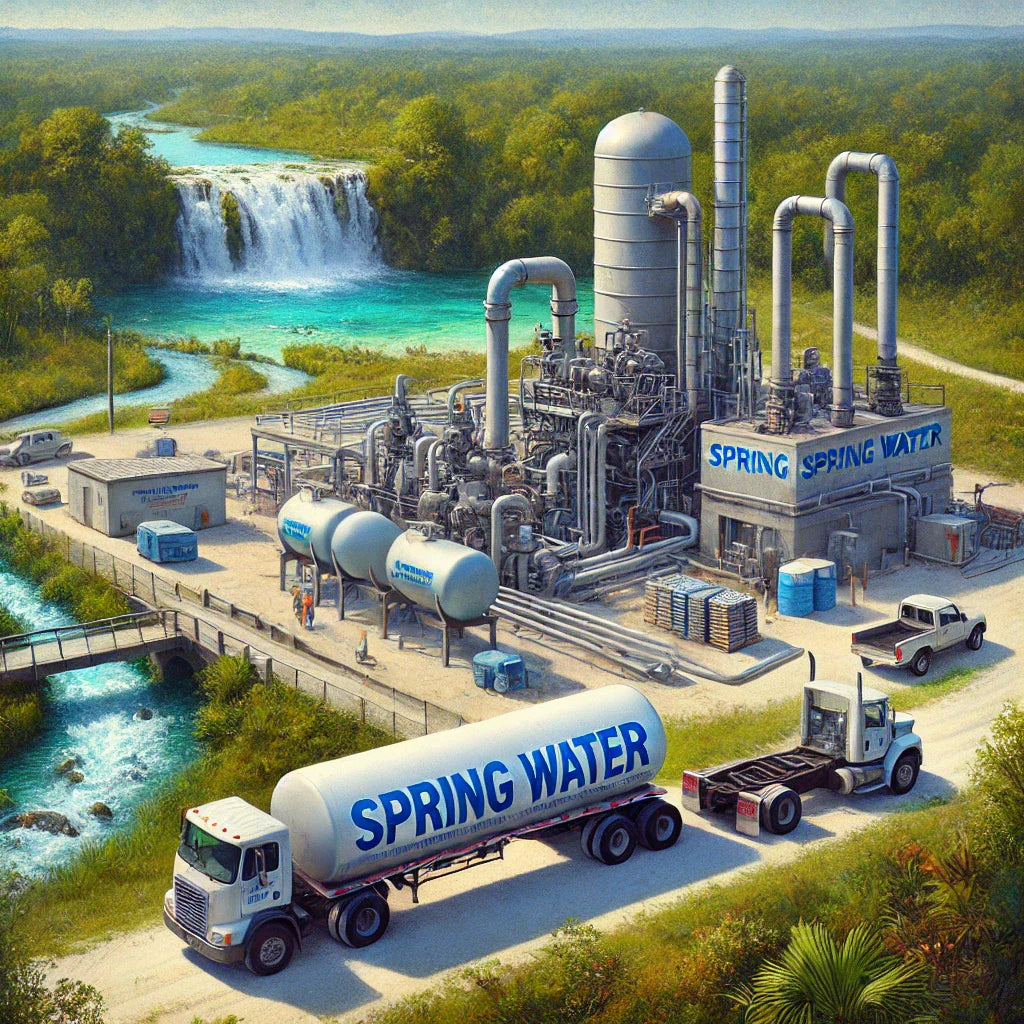
The Battle Over Florida’s Natural Springs: Who’s Draining Them?
Share
The Importance of Florida's Springs
Florida is home to over 1,000 freshwater springs, the highest concentration on the planet. These springs serve as vital ecosystems, support diverse wildlife, and are essential sources of fresh water for communities. They also attract millions of visitors annually, contributing significantly to the state's tourism industry. However, the health of these springs is deteriorating due to various environmental pressures.
Major Threats to the Springs
-
Groundwater Over-Extraction
One of the primary threats to Florida's springs is the excessive extraction of groundwater from the Floridan Aquifer, which feeds the springs. This over-extraction leads to reduced spring flows, adversely affecting the ecosystems dependent on them. While rainfall significantly impacts spring flow, groundwater withdrawals also play a crucial role. The Southwest Florida Water Management District notes that "groundwater withdrawals from the Floridan aquifer can affect the rate of flow" in springs.
-
Nutrient Pollution
Elevated levels of nutrients, particularly nitrogen from fertilizers, wastewater, and agricultural runoff, have led to algal blooms in many springs. These blooms degrade water quality, harm aquatic life, and diminish the recreational value of the springs. The Florida Department of Environmental Protection reports that "about 80 percent of all of Florida's springs are severely polluted and biologically impaired by nitrogen."
-
Bottled Water Extraction
The commercial extraction of spring water for bottling has become a contentious issue. Companies pay minimal fees to extract vast quantities of water, leading to concerns about the sustainability of such practices. For instance, water bottling companies pay a one-time permit fee of about $115-$130 to pump water out of Florida's natural springs. After that fee, they have no other fees that must be paid for them to pump millions of gallons of water.
Case Study: Ginnie Springs
Ginnie Springs, a popular recreational site, has become a focal point in the debate over water extraction. The Florida Springs Council highlights that "per gallon, bottling spring water at Ginnie Springs is 900 times more damaging than other withdrawals in the same spring basin." This statistic underscores the disproportionate impact that bottled water extraction can have on individual springs. floridaspringscouncil.org
Environmental and Economic Implications
The degradation of Florida's springs has far-reaching consequences:
-
Ecological Impact: Reduced water flow and quality threaten habitats for numerous species, some of which are endangered.
-
Economic Consequences: Declining spring health can lead to reduced tourism, impacting local economies that rely on recreational activities like swimming, diving, and kayaking.
-
Public Health: Contaminated springs can affect drinking water sources, posing health risks to communities.
Efforts to Protect the Springs
Recognizing the critical state of the springs, various initiatives have been launched:
-
Regulatory Measures: The Florida Department of Environmental Protection has identified 24 springs with excess nitrogen levels and is working on Basin Management Action Plans to address pollution sources. floridadep.gov+1floridadep.gov+1
-
Public Awareness: Environmental groups are raising awareness about the importance of conserving spring ecosystems and advocating for sustainable water use practices.
-
Sustainable Practices: There is a growing push for agricultural and urban practices that minimize nutrient runoff and promote water conservation.

Conclusion
Florida's natural springs are invaluable ecological and economic assets that require concerted efforts to protect and restore. Addressing the challenges of groundwater over-extraction, nutrient pollution, and unsustainable commercial practices is essential to ensure these natural treasures endure for future generations.indepthmag.com
News Highlight
Environmentalists are headed to court over a proposed oil well in a vulnerable Florida watershed, highlighting ongoing concerns about protecting the state's delicate ecosystems. apnews.com
News Highlight
In Florida, a race is on to save the Everglades and protect a key source of drinking water, underscoring the broader challenges facing the state's water resources. apnews.com
Note: The health of Florida's springs is a complex issue involving multiple stakeholders. Ongoing research and adaptive management strategies are crucial to effectively address these environmental challenges.
